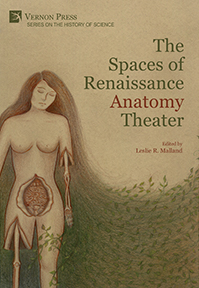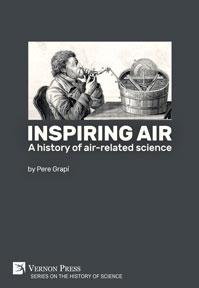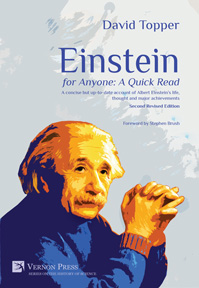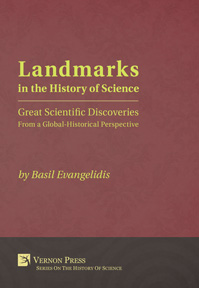Search
Browse
by Publication status
by Subject
Anthropology (26) Art (126) Business and Finance (27) Cognitive Science and Psychology (56) Communication and Journalism (49) Economics (63) Education (70) History (150) Human Geography (22) Interdisciplinary (43) Language and Linguistics (134) Law (16) Music Studies (19) Philosophy (161) Political Science and International Relations (104) Sociology (317) Statistics and Quantitative Methods (21)by Series
Series in Literary Studies (68) Series in Philosophy (59) Series in Education (54) Series in Sociology (45) Bridging Languages and Scholarship (33) Series in Politics (32) Series in World History (32) Series in Language and Linguistics (25) Cognitive Science and Psychology (21) Series in Philosophy of Religion (21) Series in American History (20) Series in Art (19) Critical Perspectives on Social Science (18) Series in Cinema and Culture (16) Series in Critical Media Studies (16) Curating and Interpreting Culture (15) Series on the History of Art (14) Economics (14) Series in Anthropology (13) Series in Business and Finance (13) Series in Music (12) Series in Communication (9) Series in Performing Arts (9) Philosophy of Personalism (8) Series in Law (8) Series on Climate Change and Society (8) Series in Economic Methodology (7) Women's Studies (7) Classics in Economics (6) Series in Economic Development (6) Philosophy of Forgiveness (5) Series in Built Environment (5) Series in Economic History (5) Series in Philosophy of Science (5) Series in Social Equality and Justice (5) Series on the History of Science (4) Serie En Estudios Literarios (3) Serie en Sociología (3) Series in Contemporary History (3) Series in Creative Writing Studies (3) Series in Design (3) The Interdisciplinary Built Environment (3) Serie en Comunicación y Medios (2) Serie en Historia (2) Serie en Música (2) Series in Heritage Studies (2) Series in Innovation Studies (2) Series in Philosophy of Race (2) Serie en Ciencias Políticas (1) Serie en Entorno Construido (1) Serie en Estudios Culturales (1) Serie en Filosofía (1) Serie en Filosofía de la Ciencia (1) Serie sobre Cambio Climático y Sociedad (1) Series in Classical Studies (1) Series in Economics of Technological Change (1) Series in Urban Studies (1)by Language
English Spanishby Author
Browsing with filters
The Spaces of Renaissance Anatomy Theater
Edited by
Leslie R. Malland, University of Texas Permian Basin
Availability: In stock
238pp. ¦ $81 £64 €70
The space of Renaissance anatomy is not solely in the physical theatre. As this collection demonstrates, the space of the theatre encompasses every aspect of Renaissance culture, from its education systems, art, and writing to its concepts of identity, citizenship, and the natural world. This book argues that Renaissance anatomy theatres were spaces of intersection that influenced every aspect of their culture, and that scholars should broaden their concept of anatomy theatres to include more than the physical space of the theatre itself. Instead, we should approach the anatomy theatres as spaces where cultural expression is influenced by the hands-on study of human cadavers. This book enters the ongoing conversation surrounding Renaissance anatomy by dialogically engaging with such scholars as Jonathan Sawaday, Merry E. Wiesner-Hanks, Kathryn Schwarz, and primary texts such as ‘De humani corporis fabric’, Montaigne’s ‘Essais’, and Shakespearean plays. The book also features Renaissance artwork alongside works by Laurence Winram.
Inspiring air: A history of air-related science
Pere Grapí, Universitat Autònoma de Barcelona, Spain
Availability: In stock
380pp. ¦ $69 £52 €58
| Recommended by CHOICE, November 2019 Vol. 57 No. 3 | Eudiometers were instruments originally devised for checking the ‘goodness’ of common air. Seeking to be more than just a chronological inventory of eudiometers, this book presents a unique retrospective of these fascinating apparatuses from the end of the eighteenth century to the mid-nineteenth century. By paying particular attention to the experimental procedures involved over the course of the test, this book aims to understand and explore how eudiometers function, to describe the materials used in making them and the different reagents employed in each eudiometrical test. Importantly, eudiometers were employed within a variety of spheres including human and animal health, gas analysis, chemical theory, plant and animal physiology, atmospheric composition, chemical compound composition, gas lighting, chemical revolution and experimental demonstration. Finally, this book looks to redress the existing imbalance in the history of chemistry regarding the attention given to theoretical aspects of chemistry in comparison to chemical practice and apparatus. The few existing accounts of chemical devices written in the past century have not been sufficiently helpful for the understanding of experimental practice in chemistry. Until now no work that deals exclusively with eudiometers and gas analysis from a historical standpoint has been published. Thus, this book will not only cast new light on the subject, but will also contribute to further research on the history of chemical instruments.
Einstein for Anyone: A Quick Read
A concise but up-to-date account of Albert Einstein's life, thought and major achievements
March 2017 / ISBN: 978-1-62273-257-9Availability: In stock
128pp. ¦ $30 £20 €28
This book seeks to fill a gap: the need for a very short book on Albert Einstein that gives a brief but up-to-date story of his life and thoughts, with a short and simple explanation of what he contributed to 20th century physics. Here is the compact story of this famous scientist, from the smiling contrarian in his grade school picture to the nonconformist adult who refused to groom his hair. There is a chapter on his habitually thorny relationships with women and close relatives: his first love, his two wives, his parents and his children – none of which was a painless union. The birth of an illegitimate daughter, the estrangement of his sons after the divorce from his first wife, his ever controlling mother – all had a profound psychological effect on Einstein’s personality. Another chapter focuses on the young Jew struggling with his self-identify, who in adulthood was unwaveringly committed to social justice and democratic principles that he believed were rooted in Jewish ethical values. It started with his early flirtation with Orthodox Judaism, only to be vehemently rejected later when he became a science-obsessed teenager. His exposure to latent and overt anti-Semitism when he moved to Germany in 1914 led to his subsequent espousal (with misgivings) of the Zionist movement. When he moved to the USA in 1933 fleeing Nazi Germany, he was confronted with the endemic racism against African-Americans, an issue he spoke-out boldly against, as a supporter of the burgeoning civil rights movement. This work ignited the ire of FBI Director J. Edgar Hoover, who had already opened a file on Einstein in 1932, because of his pacifist activities in Germany. When he moved to America, Hoover suspected him of being a Communist spy. Finally, there is the scientist who expressed his ideals through his radical ideas about the physical world, as he reworked our conceptions of space, time, and motion. The result was a new cosmic model of the universe that is still being developed further today. His commitment to an ordered and predictable universe was ultimately expressed in his final (but still unfulfilled) quest for a theory that unifies the forces of nature, what he called his unified field theory. Some non-scientific topics, not often found in biographies of Einstein (even the hefty tomes): • A serious consideration of his extensive ruminations on matters of politics and society. • His social efforts for the plight of Eastern European Jews after World War I, and the later work for refugees from Nazi Germany trying to immigrate to the USA. • A look at his close friendship with the African-American singer Paul Robeson, and others committed to civil rights. • The story of his acceptance and reception of an honorary degree from Lincoln University in May, 1946, the first all-black college in America. • His confrontation with the anti-Communist movement during the McCarthy era (especially Hoover and the FBI). • The key role the ideas of the 17th century Jewish philosopher Spinoza had on both Einstein’s theology and his scientific thinking. Some of the highlights of Einstein’s scientific pursuits found in this book: • A clear explanation, with helpful diagrams, of Einstein’s famous “thought experiments.” • The importance for Einstein of the interplay between theory and experiment in physics, as well as his practical side with real world technology. • His vacillation with and ultimate embrace of the role of abstract mathematics in his theory of relativity. • A clear explanation of the differences between Newton’s and Einstein’s ideas about gravity. • A non-technical account of the difference between Einstein’s and Bohr’s interpretations of quantum physics. • Perhaps the first elucidation for the layperson of Einstein’s obsession with and eventual abandonment of what he called Mach’s Principle. • How Einstein’s stubbornness (or chutzpah) both helped and hindered his endeavors in science. • A consideration of why he alone endlessly pursued his quest for a unified field theory. • The little known story of the Einstein-deHaas Effect. • The contrast in his later years between the public’s perception of Einstein the sage and icon of science with that of his fellow scientists, who generally saw him as an old fool chasing a pipedream. • Finally, the most recent confirmation of another of his predictions: the detection of gravitational waves, announced in February 2016.
Landmarks in the History of Science
Great Scientific Discoveries From a Global-Historical Perspective
February 2017 / ISBN: 978-1-62273-200-5Availability: In stock
204pp. ¦ $50 £38 €45
Landmarks in the History of Science is a concise history of science from a global and macro-historical standpoint. It is an account of grand theoretical revolutions, such as heliocentrism, atomism, and relativity. But, more importantly, it is also a story of the methodological transitions to the experimental, mathematical, constructivist and instrumental practices of science. It begins with Ancient Greek science, as one of the first self-conscious, comprehensive and well-documented scientific endeavors at the global level. The numerous contributions of the Greeks, in philosophy, mathematics, geometry, geography and astronomy, momentous as they were, were fruits of leisure rather than industry. It then examines the history of science in China and China’s exchanges with India and Islam. A systematic and collaborative scientific effort is the hallmark of Chinese science. The contributions of the Chinese in medicine, printing, manufacturing and navigation invariably predate and outshine those of western contemporaries. Attention then shifts to the age of oceanic discoveries, which created the inexorable presuppositions for the genesis of global trade and a world system. From the inner organs of the organisms to the outer regions of Earth, Renaissance science was ubiquitous. The importance of inter-cultural scientific syncretism is highlighted, with the Iberian Peninsula as meeting point and crossroad of mutual affection between Arab, Jewish and European culture. Discoveries and inventions in metallurgy, electromagnetism and the science of petroleum set the scientific basis for the industrial revolution. The logic of the industrial revolution dictates developments in information technologies that culminate with the invention of modern computers. A dedicated chapter on the history of modern scientific conceptions of the universe showcases the subtle links in the fabric of seminal ideas in physics and astronomy. The book concludes with some reflections on the relationship between philosophy and the history of science. Following Kuhn and Latour, this discussion centers on the characteristics of continuities, ruptures and paradigmatic transitions in science.





